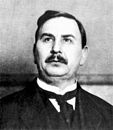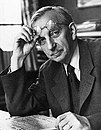1924 Swedish general election
Jump to navigation
Jump to search
| |||||||||||||||||||||||||||||||||||||||||||||||||||||||||||||||||||||||||||||||||||||||||||||||||
All 230 seats in the Riksdag | |||||||||||||||||||||||||||||||||||||||||||||||||||||||||||||||||||||||||||||||||||||||||||||||||
|---|---|---|---|---|---|---|---|---|---|---|---|---|---|---|---|---|---|---|---|---|---|---|---|---|---|---|---|---|---|---|---|---|---|---|---|---|---|---|---|---|---|---|---|---|---|---|---|---|---|---|---|---|---|---|---|---|---|---|---|---|---|---|---|---|---|---|---|---|---|---|---|---|---|---|---|---|---|---|---|---|---|---|---|---|---|---|---|---|---|---|---|---|---|---|---|---|---|
| |||||||||||||||||||||||||||||||||||||||||||||||||||||||||||||||||||||||||||||||||||||||||||||||||
| |||||||||||||||||||||||||||||||||||||||||||||||||||||||||||||||||||||||||||||||||||||||||||||||||

Caricature in a communist newspaper, on the new government formed by Hjalmar Branting after the elections
General elections were held in Sweden between 19 and 21 September 1924.[1] The Swedish Social Democratic Party remained the largest party, winning 104 of the 230 seats in the Second Chamber of the Riksdag.[2]
Results
 | |||||
|---|---|---|---|---|---|
| Party | Votes | % | Seats | +/– | |
| Swedish Social Democratic Party | 725,407 | 41.09 | 104 | +11 | |
| General Electoral League | 461,257 | 26.12 | 65 | +3 | |
| Free-minded National Association | 228,913 | 12.97 | 29 | –12 | |
| Farmers' League | 190,396 | 10.78 | 23 | +2 | |
| Liberal Party | 69,627 | 3.94 | 4 | New | |
| Communist Party | 63,601 | 3.60 | 4 | –3 | |
| Communist Party (Höglund Tendency) | 26,301 | 1.49 | 1 | New | |
| Other parties | 84 | 0.00 | 0 | 0 | |
| Total | 1,765,586 | 100.00 | 230 | 0 | |
| Valid votes | 1,765,586 | 99.69 | |||
| Invalid/blank votes | 5,473 | 0.31 | |||
| Total votes | 1,771,059 | 100.00 | |||
| Registered voters/turnout | 3,338,892 | 53.04 | |||
| Source: Nohlen & Stöver | |||||
Aftermath
After the election the Cabinet of Ernst Trygger resigned and Gustav V asked Hjalmar Branting to form a new Cabinet which the Social Democratic leader accepted.
References
- ^ Nohlen, D & Stöver, P (2010) Elections in Europe: A data handbook, p1858 ISBN 978-3-8329-5609-7
- ^ Nohlen & Stöver, p1872






